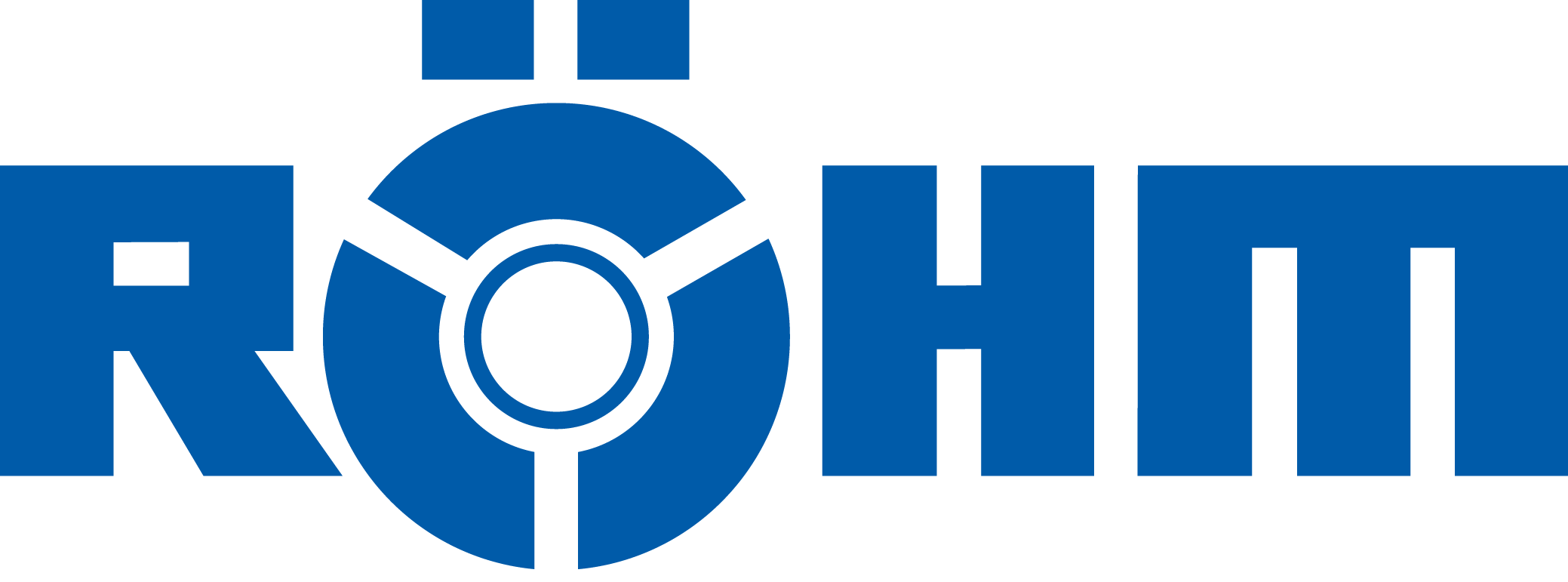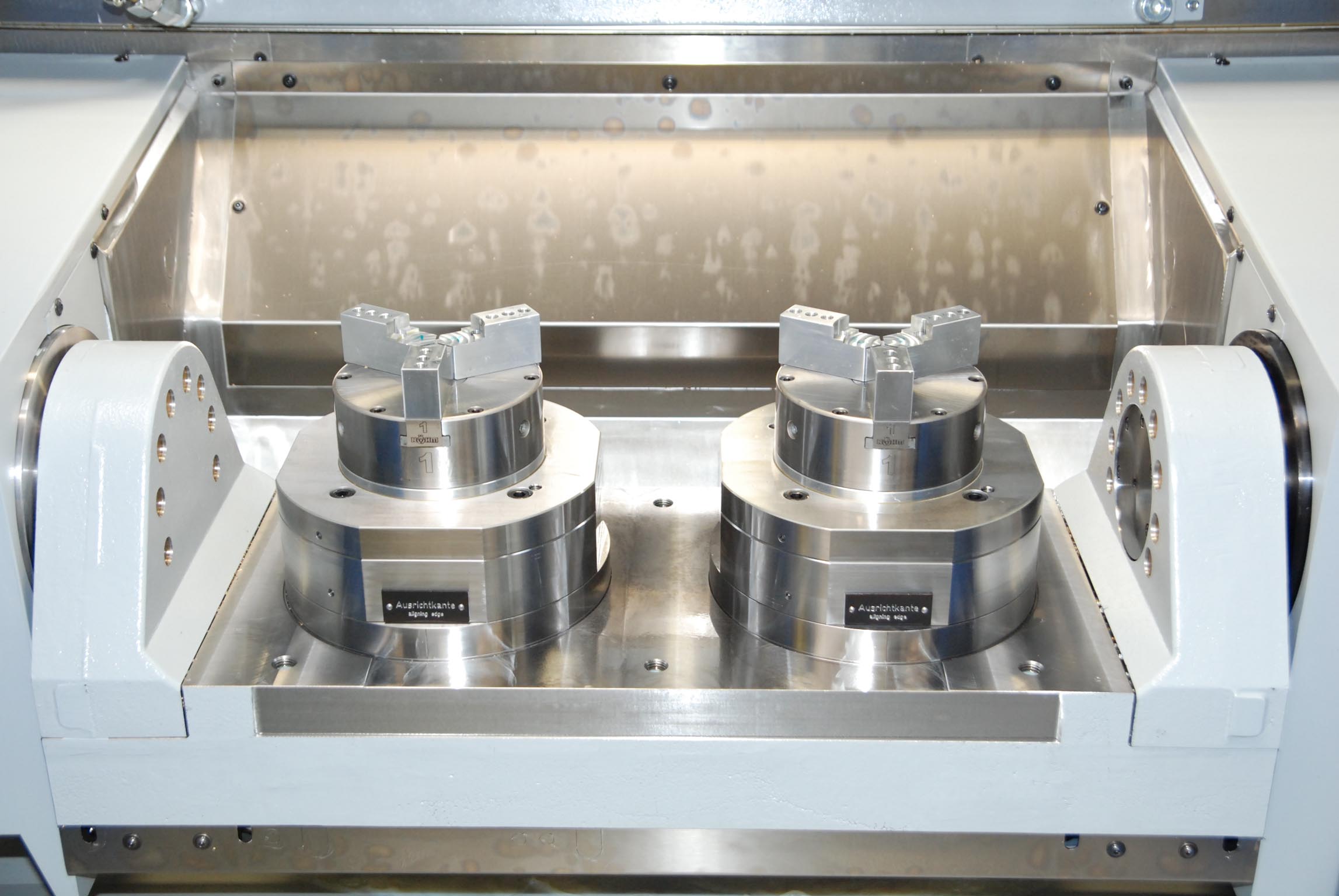For a bright future
Close contacts with the customer enable RÖHM to develop an ideal clamping solution.
Based in Veltheim, Switzerland, the Werder company is a valued partner to its customers all over the world when it is a matter of precision turning and milling. Because Werder not only offers quality but is also meticulous in adhering to delivery schedules, companies are happy to place orders with the Swiss family business even in times of unfavourable exchange rates. A Chiron processing centre has now just been set up to provide greater flexibility in connection with special orders. Customised clamping solutions from RÖHM make it possible for the Argovian turning and milling experts to achieve the desired flexibility and productivity in making parts for turbochargers, locking systems or revolutionary LED luminaires. By consistently asking questions and coming up with a solution that fitted all the customer's requirements exactly without going beyond budget, RÖHM's Swiss branch succeeded in creating a win-win situation for all those involved.
'We were even more delighted with the new machine when we saw how well these chucks met our requirements,' Claude Werder recalls. 'Thanks to the comprehensive questions that RÖHM's specialists put to us,' the Managing Director of Werder AG continues, 'we now have the customised solution and the flexibility that we wanted.' A brand new Chiron FZ 15 Magnum processing centre with attached FlexCell Uno, capable of operating three shifts, can now make bearings out of special brass for the turbochargers of big diesel engines with maximum precision and reliability. These are to be used in ships of ultra-modern design to make drive systems that are both economical and environmentally friendly. Another application involves the clamping of locking cylinders for complex five-sided milling and drilling operations. This can be challenging, as Head of Production André Stäger explains: 'We guarantee our customers extremely short delivery times for all orders in batch sizes from 2 to 1500 parts. This means flexibility is essential.' And finally, the turning and milling experts from the 'triple A' canton of Argovia are manufacturing intelligently designed aluminium supports for a revolutionary LED lighting system developed by a Swiss inventor.
Chiron had positive experience with RÖHM
The mechanical engineers at Chiron recommended RÖHM for the workpiece clamping in connection with their machine, which they supplied to the customer's specific requirements. The Tuttlingen company had had positive experience with the clamping technology experts in Sontheim, who besides had a branch of their own in Switzerland not far from Veltheim. Deputy Managing Director Damiano Casafina came over from Herzogenbuchsee to find out about Werder's special requirements right from the horse's mouth. 'It soon became clear to me that only a customised solution would be able to provide the necessary flexibility,' Casafina emphasises. Based on the customer's requirements, and working in close cooperation with RÖHM's designers in Germany, a suitable solution was developed. This has finally given rise to the combination of a standard clamping device with some extra specifications.
Modified standard products with a perfect fit
Today workpieces for the manufacture of cylinders are clamped using pneumatically powered KZSP 160 centric clamping units, which make it possible for five-sided processing to be carried out. The basic jaws have finely serrated edges and a tongue and groove interface. These effect a lift of 3.2 millimetres and make it possible for Werder's own clamping jaws to be mounted on the unit. 'This was another request on our part,' says Head of Production André Stäger. Moreover a connection for oiled sealing air with its own pipework has been incorporated in the body of the clamping unit. The chuck is fastened securely on the machine's round table by way of a connecting plate and connected to the pneumatic feed.
For the manufacture of the axial slide bearings in special brass and the luminaire mounts in aluminium, Werder makes use of a Type PKF 150 pneumatically operated precision power chuck from RÖHM. This too has been modified to meet the customer's requirements. Not only does the chuck clamp with extreme precision, the clamping force can also be finely adjusted so that thin or fragile workpieces can be securely fixed in place for processing without any risk of their losing their shape.
Furthermore, here too a pipe connection in the body of the clamping element allows for the passage of oiled sealing air, so facilitating the clamping and release. The adapter plate has been designed in such a way that it will also fit the larger PKF 160 variant of the precision power chuck.
Reliability makes ghost shifts possible
Four specimens of each chuck were supplied to Werder. At the milling centre each workpiece has two pairs of chucks set up on a swivel table. On two of these the necessary milling and drilling operations for the axial slide bearings are carried out, everything being completely automated, while on the other two, during primary processing time, the half-finished workpieces are turned around so the reverse side can be processed, and new workpieces are got ready for processing. This is accomplished by the Fanuc robot, again in a completely automated way. All the components work so reliably that unmanned ghost shifts are possible.
After the table has been swung out, making two processed workpieces accessible, the robot first clears the workpiece of chips with a blast of air before it is released by the chuck. Now the part is extracted and the chuck itself is aerated to remove any chips adhering. Workpieces that have been processed on the front side are turned around and clamped in the chuck once more. Completely processed workpieces are deposited by the robot on the pallet provided. The robot then fetches another blank. If all the spaces on the workpiece pallet are taken, the robot pushes them into a paternoster storage system and pulls out another pallet with unmachined parts and empty delivery spaces. 'Above all the reliability with which the chucks work makes it possible for us to carry on production in unmanned shifts and so adhere to delivery schedules, even when dealing with large item quantities,' Werder's Head of Production declares.
Adherence to schedule secures competitive advantage
This becomes particularly clear in the processing of aluminium luminaire supports. Something dreamed up by a Swiss hobbyist is being turned into a reality by the Werder company's precision mechanics. LUXLIGHT LED lamps and luminaires from Switzerland are currently taking the European market by storm. In view of their low power consumption and long service life, but above all because of their intense luminosity, they are in ever greater demand. 'This is already resulting in orders running to batch sizes of 2500 or more, which have to be delivered promptly,' Claude Werder remarks.
As the orders are frequently intended for major construction projects like shopping centres, warehouses or automobile dealerships, you can understand the quantity and the urgency involved. 'With first-time installations or conversions our LUXLIGHT LED products, when integrated with new or existing fittings, can achieve energy savings of up to 70%, with a service life of as much as 50,000 hours and considerable CO2 reductions,' the founder of LUXLIGHT reports.
Besides the LED technology, the innovative element is to be seen in the luminaire support. This comes with a connection system which makes it possible for the luminaires to be connected and replaced with ease. To support the luminaire, grooves have to be milled in the aluminium ring and deburred. This is where RÖHM's PKF precision power chucks come into their own, working with extreme delicacy but still securely and with maximum exactitude. Two indentations on opposite sides of the surrounding ring are milled in each workpiece.
Then deburring is carried out with a brush. Care must be taken so that the thin aluminium ring will not be pushed out of shape. The automation of the entire process is currently in preparation. It should be possible in future, if required, to dispense with human intervention altogether.
Designing parts with the manufacturing process in mind
The project is a showcase illustration of the skills of Werder's precision mechanics - as in this case reliable manufacturing was not the end of the story. The Argovian specialists initially designed the part based on their first talks with the customer. 'An ideal scenario,' Stäger says, 'as it enabled us to design the workpiece while bearing the manufacturing process in mind. That simplifies the production at a later stage, and lowers the costs incurred by the customer.' And Werder adds: 'The sooner the customer gets us involved in the process, the better the implications for the subsequent production costs and so for the bill.' With almost 60 years of experience behind them, Werder's specialists also have the necessary equipment available. 'And if our tailormade solution can contribute in the same way to a success story in future, we will be willing to listen again next time round and happy to share our experience,' Casafina promises. Claude Werder is pleased to hear it: 'The partnership with Röhm has turned out admirably.' So it's a win-win situation all round.


